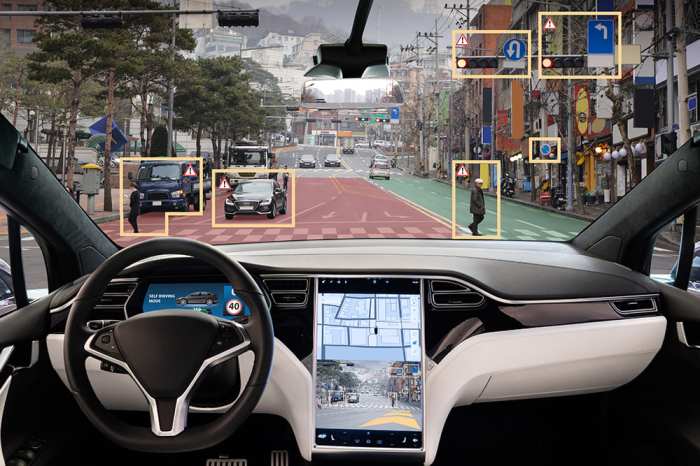Germany wants self driving cars to have black boxes – Germany Wants Self-Driving Cars with Black Boxes: In a move that underscores the country’s commitment to road safety and accountability, Germany has mandated that all self-driving cars must be equipped with black boxes. This decision, which sets Germany apart from many other nations, reflects a growing awareness of the complexities and potential risks associated with autonomous vehicles.
The requirement for black boxes in self-driving cars is driven by a desire to ensure that accidents involving these vehicles can be thoroughly investigated, allowing for improvements in safety and the development of autonomous driving technology. The black box data, which records crucial information about the vehicle’s operation, can provide valuable insights into the cause of an accident, helping to determine whether human error, software glitches, or environmental factors played a role.
Future Trends and Considerations
The development of black box technology in self-driving cars is an ongoing process, with significant potential for advancements in the coming years. This technology will play a crucial role in understanding accidents, improving safety, and ultimately paving the way for the widespread adoption of autonomous vehicles.
Future Development of Black Box Technology
Black box technology in self-driving cars is expected to evolve significantly in the future. Advancements in artificial intelligence (AI), sensor technology, and data storage capabilities will enable black boxes to collect and analyze a wider range of data, providing a more comprehensive picture of driving events. For example, future black boxes could incorporate:
- Enhanced sensor capabilities: Incorporating more advanced sensors, such as lidar and radar, to capture a more detailed and accurate representation of the surrounding environment. This would allow for the reconstruction of events with greater precision.
- Real-time data analysis: Utilizing AI algorithms to analyze data in real-time, enabling the black box to identify potential hazards or anomalies during driving. This could help prevent accidents by providing early warnings to the driver or the autonomous system.
- Cloud-based data storage: Utilizing cloud computing to store and analyze large amounts of data collected by black boxes. This would allow for more comprehensive analysis and sharing of data across different vehicles and manufacturers.
- Integration with vehicle systems: Seamlessly integrating black boxes with other vehicle systems, such as navigation, communication, and entertainment systems. This would enable a more holistic understanding of driving events, including driver behavior, vehicle performance, and external factors.
Ethical and Legal Challenges
The use of black box data in self-driving cars raises various ethical and legal challenges.
- Data privacy and security: The collection and storage of personal data, including driving habits, location information, and potentially sensitive information, raise concerns about data privacy and security. Robust measures are needed to protect this data from unauthorized access and misuse.
- Liability and accountability: In the event of an accident, determining liability and accountability becomes complex when autonomous vehicles are involved. Black box data could be crucial evidence, but questions arise regarding the interpretation and use of this data in legal proceedings.
- Bias and discrimination: There are concerns that AI algorithms used in black boxes could be biased, leading to unfair outcomes. For example, if an algorithm is trained on data that disproportionately represents certain demographics, it could lead to biased decisions regarding accident analysis or liability.
- Transparency and access to data: Ensuring transparency in the collection, analysis, and use of black box data is essential. Drivers, regulators, and the public need access to information about how this data is being used and the implications for safety and accountability.
Timeline of Black Box Regulations in Germany, Germany wants self driving cars to have black boxes
Germany is taking a proactive approach to regulating black box technology in self-driving cars.
- 2023: Initial regulations regarding the mandatory installation of black boxes in self-driving cars are introduced, focusing on data recording requirements and accident analysis.
- 2025: Further regulations are implemented, addressing data privacy, security, and access to data. Guidelines for the interpretation and use of black box data in legal proceedings are established.
- 2028: The regulatory framework for black box technology in self-driving cars is fully established, incorporating best practices and addressing emerging challenges. Germany aims to become a leader in the development and deployment of safe and ethical autonomous vehicles.
Final Thoughts: Germany Wants Self Driving Cars To Have Black Boxes
The implementation of black boxes in self-driving cars in Germany is a significant step towards ensuring accountability and transparency in the development and deployment of autonomous vehicles. The data collected by these devices has the potential to significantly enhance road safety, while also fostering public trust and acceptance of this emerging technology. As self-driving cars become more prevalent, the role of black boxes will undoubtedly continue to evolve, raising new ethical and legal considerations that will need to be addressed.
Germany’s push for black boxes in self-driving cars aims to improve safety and accountability in the event of an accident. This initiative, much like the recent release of the macOS Sierra dark mode OS wide , emphasizes a proactive approach to technology.
While the dark mode aims to reduce eye strain, the black boxes in self-driving cars would provide crucial data for investigating crashes, leading to better understanding and prevention of future incidents.
 Securesion Berita Informatif Terbaru
Securesion Berita Informatif Terbaru
